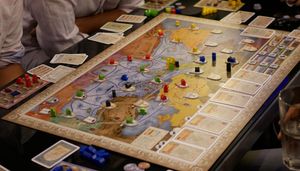Does your organization struggle with projects? Do you know about the types of projects? Stick with me, and I’ll show you a new way of thinking about organizational change projects.
I’ll also explain why it’s important to learn about the 4 types of projects. And, why this knowledge can make you a better change leader or project manager.
The Game of Projects
The game of projects has many principles but few rules. Ultimately, project management and leading change is about directing people, managing resources, and making open informed decisions.
But what leadership skills do we need? Should we deal with all types of project the same way?
Read on, and I’ll explain why the game of projects is about understanding the different kinds of organizational change businesses encounter. This is about the 4 types of project described in Eddie Obeng’s book All Change, the Project Leader’s Secret Handbook.
When starting a project, circumstances dictate the course we follow.
Indeed, every project has different characteristics and requires different leadership skills.
So, learn to play the game of projects.
4 Types of Projects—Fog, Quest, Movie, and Paint by Numbers
What do you focus on when managing a project? Do you focus on managing people? Do you place importance on processes? Or do you try to understand the type of project—the type of transformational change—you are leading?
Fortunately for us, Eddie Obeng identified 4 types of project to help us diagnose projects and recognize the issues we are likely to face when embarking on organizational change.
So, let’s understand the 4 types of project.
Going on a quest
You know what needs to be done, but you don’t know how.
The business may lack technical expertise or project management maturity. So, the aim of the quest is to get your knights to seek as many ways as possible to achieve your goal.
The project leader must give the project team purpose and authority to explore possibilities.
Making a film or movie
You know how, but not what you need.
Initially, these projects are about solving problems and developing a business case. When making a movie, your choices are to some extent open because you write the script.


